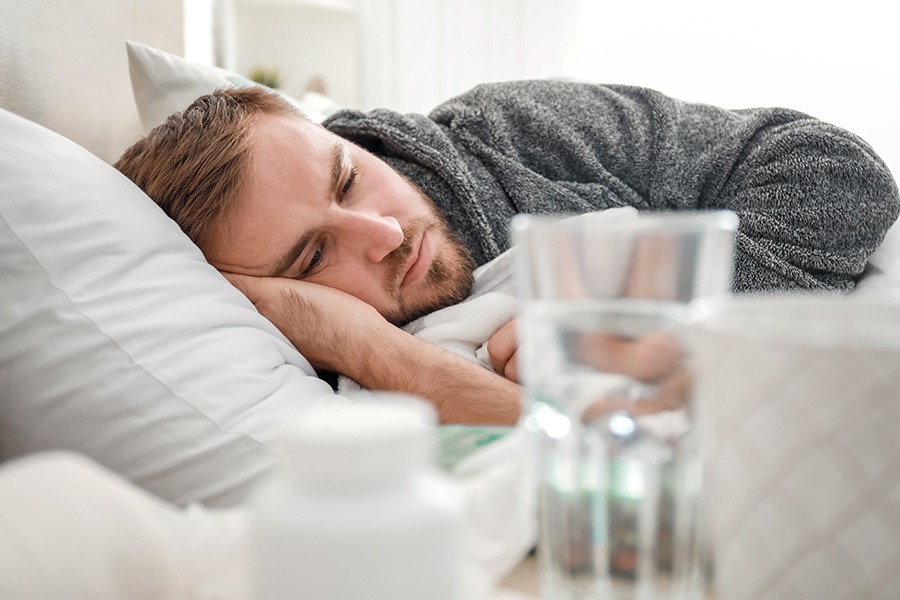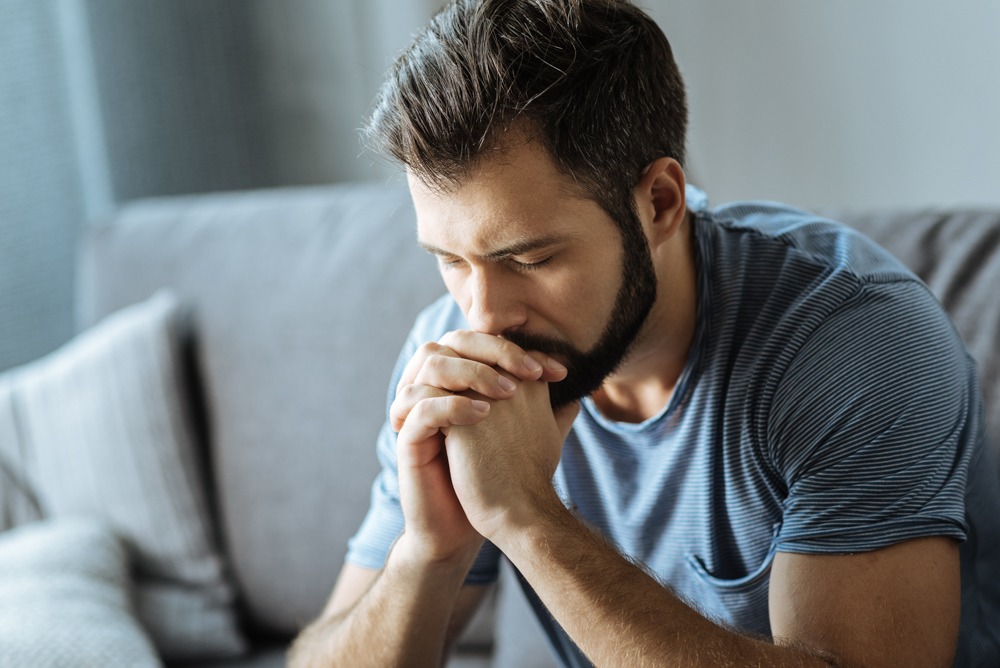Recovery is a powerful journey that is sometimes plagued by many challenges. Depression is one of the biggest hurdles that many people face in early recovery. When you’re trying to build a new, healthier life, the weight of past struggles and the emotional toll of change can feel overwhelming. It’s normal to feel low, frustrated, or disconnected from oneself during this phase.
The key to handling depression in early recovery is understanding that you’re not alone, and there are practical steps you can take to feel better. From finding healthy ways to manage emotions to reaching out for help when needed, dealing with depression is about making small, consistent choices that lead to long-term healing.
What Causes Depression in Early Recovery?
Depression in early recovery can be caused by a mix of emotional, physical, and psychological factors. The brain begins to adjust to life without substances or behaviors that may have been blocking painful emotions or memories. This shift can feel like a sudden drop in mood, leaving a person feeling empty, sad, or hopeless. Recovery isn’t just healing from physical dependence but also the emotional deadweight of past struggles.
Another big factor is the loss of past coping mechanisms once relied upon (like alcohol addiction, drugs, or unhealthy behaviors). In early recovery, a person might find themselves facing feelings they’ve been avoiding for a long time, such as guilt, shame, or unresolved trauma.
What Are the Common Signs of Depression in Early Recovery?
In early recovery, depression can show up in different ways. These are a few general signs of depression to look out for in early recovery:
- Low Energy. You feel constantly drained, even after sleeping or resting.
- Lack of Motivation. You face difficulties with starting tasks or staying engaged in activities you used to like.
- Persistent Sadness. You feel a lingering sense of sadness, hopelessness, or emptiness.
- Difficulty Concentrating. You have trouble focusing, making decisions, or remembering details.
- Irritability or Frustration. You get easily annoyed or overwhelmed, even by little things.
- Changes in Sleep Patterns. You struggle with insomnia or oversleeping.
- You avoid friends, family, or support groups.
- Loss of Interest. You are no longer interested in hobbies or things you once cared about.
- Physical Complaints. You experience unexplained aches, pains, or other physical symptoms.
- Negative Self-Talk. You think too critically about yourself or feel unworthy of recovery.
- Overwhelming Guilt. You feel excessively guilty about past actions or struggles.
- Cravings or Relapse Urges. You feel more tempted to return to old habits as a way to cope.
- Feeling Stuck. You think that your progress in recovery is slow or impossible, making you feel discouraged.
Can Depression Hinder Sobriety?

Yes, depression can make it harder to maintain sobriety. Dealing with deep feelings of sadness or hopelessness can make it feel like the weight of the world is heavier than ever. In these tough moments, the temptation to escape those feelings by turning to old habits can be overwhelming. It’s like the mind is looking for a quick way out, even if the person knows it’s not the right choice. Depression can also mess with motivation and energy levels, making it harder to stay focused on recovery and other priorities.
How Can I Stay Motivated Despite Feeling Low?
Below are a few basic tips to help maintain motivation through the early stages of recovery.
Set Small, Achievable Goals
Instead of tackling monumental tasks, break them down into smaller, more manageable ones. Completing even a small goal can boost confidence and motivation.
Focus on Progress, Not Perfection
Celebrate the little wins, even if it feels like the goal is far away. Every step forward counts.
Lean on Your Support System
Talk to friends, family, or a sponsor who can remind you why you started this journey and provide encouragement.
Practice Self-Compassion
It’s okay to have bad days, and self-punishment doesn’t solve anything. What matters most is getting back up.
Find Purpose in Your Recovery
Reconnect with the original reasons for sobriety, whether it’s health, relationships, or future goals.
Stay Active
Physical activity, even a short walk, can help lift mood and provide the energy to keep going.
Use Positive Affirmations:
Challenge negative thoughts with reminders of inner strength, resilience, and the goals that have already been accomplished.
Create a Routine
Structure can help keep a person grounded. It provides something to look forward to and helps break the cycle of feeling stuck.
8 Tips For Dealing With Depression During Early Recovery
Dealing with negative thoughts is something everyone faces at some point, but there are ways to fight back against them. These coping strategies that can help handle negative thinking more healthily:
Challenge the Negative Thoughts
When you catch yourself thinking something negative, ask if it’s true. Are there facts or evidence that support the thought, or is it just assuming the worst? Try changing those negative thoughts to more positive or realistic ones.
Practice Mindfulness
Sometimes negative thoughts come from being stuck in the past or worrying about the future. This can be as simple as paying attention to your breathing, noticing how the body feels, or doing a grounding exercise like listing five things in the immediate area.
Shift Your Focus
Instead of letting negative thoughts take over, distract yourself with something you enjoy. Go for a walk, listen to music, read a book, or get creative. A change of scenery or activity can help reset your mindset.
Practice Self-Compassion
Treat yourself like you would treat a friend. Speak to yourself with the same care and compassion you would offer someone important to you.
Limit Exposure to Triggers
If you notice certain things or people make your negative thoughts worse, it can help to take a step back from those triggers. Protecting your mental space can give you room to process thoughts more positively.
Talk It Out
Sometimes opening up to someone you trust about what’s on your mind or going on in your life can give you relief. Expressing your feelings can bring clarity and reassurance that you’re not alone in your struggles.
Exercise
Physical activity is exponentially beneficial for your body and your mind. Exercise helps release endorphins, chemicals in your brain that boost your mood.
Create a Gratitude Journal
Writing down things you’re grateful for can shift your attention from negative and self-hating things to what’s actually going right in your life. Each day, try to write down at least three things you’re thankful for, no matter how small.
When is it Time to Seek Professional Help for Depression in Early Recovery?

Recovery is a huge step forward, but it’s not always easy. If you’re dealing with depression during early recovery, it’s important to know when to reach out for professional help. Consider seeking professional help from a therapist or counselor if you notice any of these signs:
You Feel Overwhelmed by Negative Emotions
You're Struggling to Stay Sober
If you notice that the depression is triggering cravings or making you more tempted to relapse, seeking help from a professional can provide the guidance and tools you need to stay on track.
Your Daily Life Is Being Affected
If you find yourself unable to get out of bed, missing work or school, or isolating from friends and family, it’s time to reach out for help.
You’re Feeling Constantly Tired or Unmotivated
If you’re consistently exhausted no matter how much sleep you get, or if you’ve lost interest in hobbies and activities that used to make you happy, professional help can help you address these symptoms and get your energy back.
You're Having Trouble Managing Your Emotions
If you’re finding it hard to manage things like anger, frustration, or sadness, or if your emotions are swinging wildly, a therapist can help you understand and regulate them better, preventing emotional overload.
You’re Experiencing Thoughts of Self-Harm or Suicide
This is an absolute red flag. If you have thoughts of suicide or self-harm, please seek immediate help from a mental health professional. Your mental health and safety should always come first, and professionals can support you through this dark time.
You’re Feeling Isolated and Alone
If you find yourself pushing people away or feeling completely alone, professional help can provide the support you need to reconnect with others and feel less isolated.
You Can’t Stop Thinking About the Past or the Future
If you’re unable to move beyond these thoughts and they’re causing you distress, talking to a counselor can help you gain perspective and work through those emotions.
You Feel Like You're Not Making Progress
If it feels like you’re stuck in your recovery, or you’re not seeing any improvement in your mood or outlook, it might be time to speak with someone who can offer guidance and support. A therapist can help you break through the barriers and offer strategies to move forward.
Your Coping Strategies Aren’t Working
You may have tried different strategies to manage depression, like exercise, journaling, or talking to friends. But if nothing seems to be making a difference, it’s time to get professional help.
First Steps is Here to Help Your Recovery Journey
Starting your recovery journey can feel like a big, overwhelming step, but you don’t have to do it alone. First Steps Recovery is here to help guide you through the process, offering the support and resources you need to rebuild your life, one step at a time. We provide a safe, supportive space where you can focus on healing without judgment. Contact us today to take your first step towards a healthier life where you are in control.
Dr. Belis Aladag is a board-certified physician in Addiction Medicine and Family Medicine, with a Master of Public Health from Johns Hopkins. She brings more than 15 years of experience in clinical care, medical education, and leadership. Recognized as a “Top Doctor” in Sacramento Magazine and Los Angeles Magazine, Dr. Aladag is dedicated to compassionate, evidence-based care and expanding access to mental health and addiction services.





